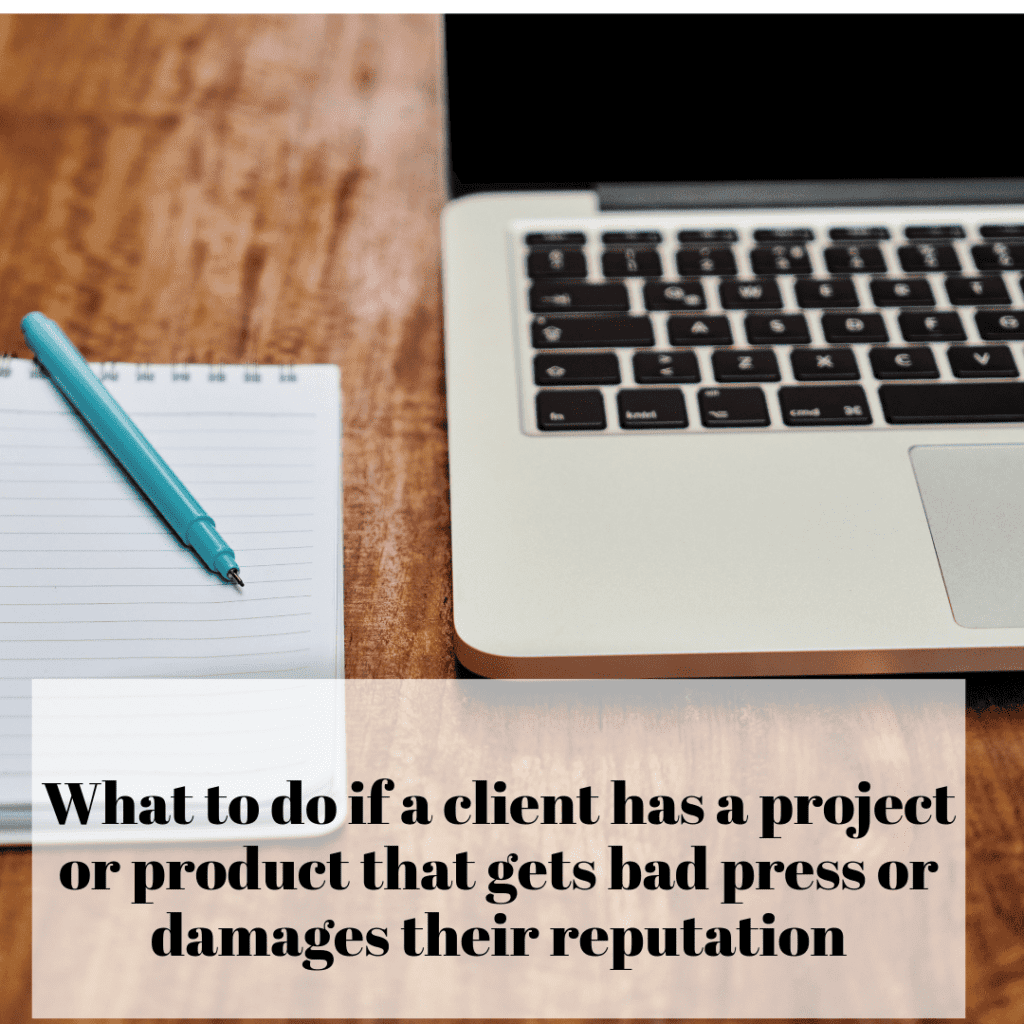
What to do if a client has a project or product that gets bad press or damages their reputation
It’s bound to happen – sometimes people misspeak, provide incorrect information or panic and make a choice they shouldn’t have. A project or product getting bad press is a moment of crisis, but it doesn’t need to damage their reputation permanently if the correct steps are take
First, assess the damage to your reputation.
What went wrong and why? Then, do your homework. The media will want details. Decide what you’ll be able to discuss, and what you won’t. Remember, you have the information, so it’s up to you to decide how to feed it out to the various audiences. Depending on the issue, a bad reputation may impact customers, clients, potential clients, and a variety of other audiences. Don’t forget to take them all into consideration; then develop messages and distribution systems for all of them. Those companies that truly want to recover also develop a follow up campaign once the immediacy of the crisis is over.
Take responsibility.
When a client is in a crisis, the most important step is to take responsibility and be transparent about what happened. By acknowledging when you are at fault and explaining what steps will be taken in the future to prevent the situation repeating, you can help the public to slowly rebuild trust.
Express sympathy.
It is essential to express sympathy if a client has done something that has harmed or caused problems in any way. It’s important to step away from corporate dialogue and connect with the public on a human-to-human basis. Apologizing sincerely and showing true remorse is vital to restoring reputation.
Anticipate problems arising with your reputation.
Any damage or crisis-related communications should, hopefully, not be unanticipated. A bank or credit union, for example, knows that one of its branches will be robbed at some point. They should include communications as a component of its security response plan. Companies should anticipate the likelihood that something will go wrong and the potential severity of the damage and map them on a risk matrix to budget sufficient time, energy, and resources to crisis management. No matter how prepared, however, you can count on something to go wrong to some degree at some point.
Ensure honest communication.
When communicating in the case of a crisis, always be honest. Hiding the truth never works – it will eventually come out. Stick to facts. If you don’t have all of the facts, say so and give the best estimate time frame to gather more information. And finally, remember that the company is the least important in any crisis. Employees, customers, business partners, and the community are your audiences and make sure to communicate on their terms, not yours.








